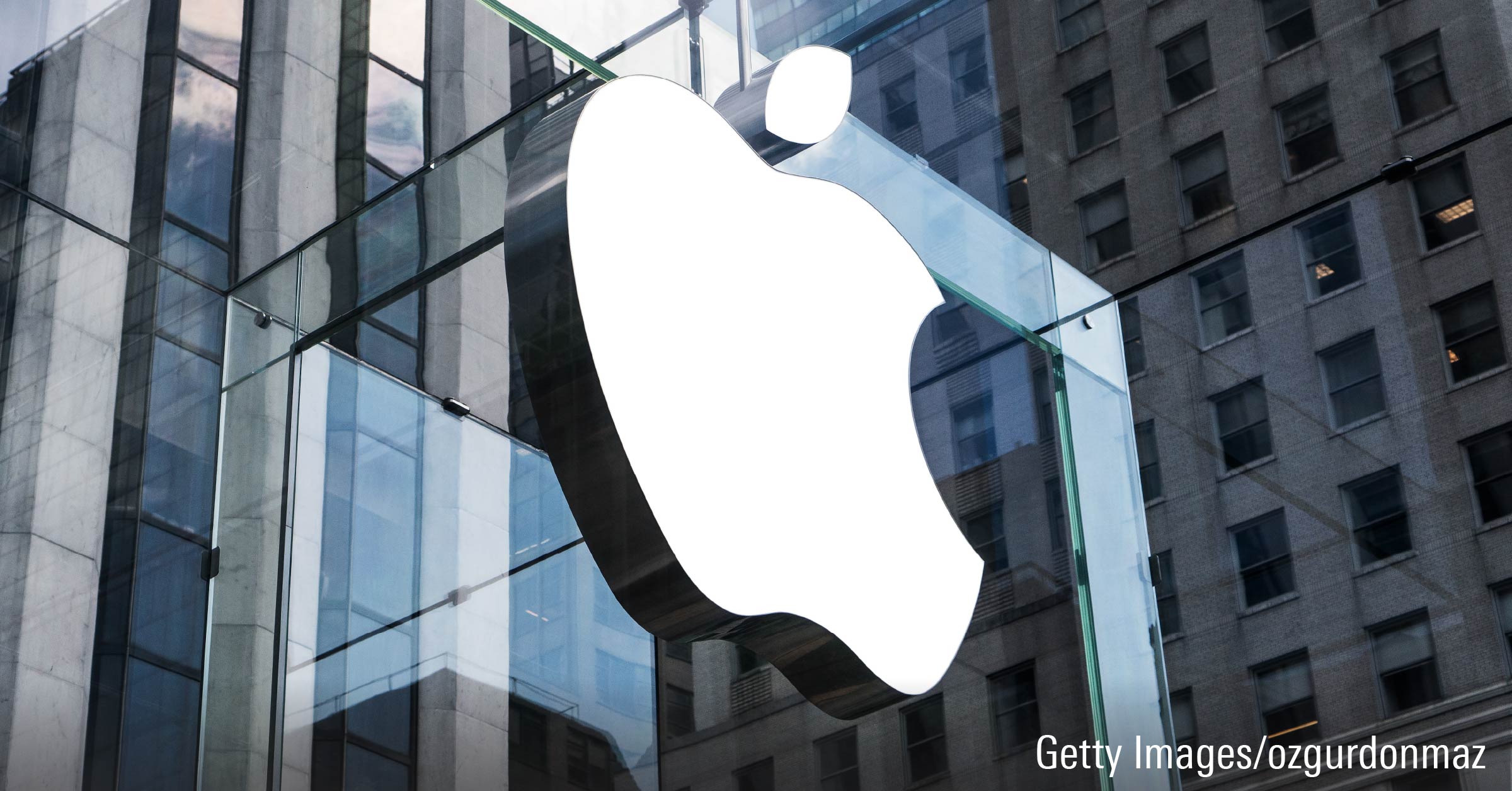Magnificent No More? Apple and Tesla Stocks Are Weighing on the Market
Why growth concerns are affecting the stock prices of these two investor favorites.

Apple AAPL and Tesla TSLA have gone from stock market darlings to drags.
Apple’s stock price is down 9% this year after roughly 50% returns in 2023, while Tesla’s stock has plunged nearly 30% after returning more than 100% the prior year. These two companies, which are among the most widely held stocks, suffer a similar ailment: slowing prospects for growth.
Apple and Tesla vs. US Market
That means the Magnificent Seven—a group of mega-sized tech stocks comprising Nvidia NVDA, Tesla, Meta Platforms META, Apple, Amazon.com AMZN, Microsoft MSFT, and Alphabet GOOGL/GOOG—are no longer moving in lockstep.
It’s a major turnaround for two tech icons that have played key roles in propelling overall stock market indexes higher. Instead, as the stock market has pushed to new highs, leadership has fallen to stocks central to the artificial intelligence boom, such as Nvidia and Microsoft.
But for Jeff Schulze, head of economic and market strategy at ClearBridge Investments, this divergence is positive for stocks overall. “If everybody’s not piling into these perceived bulletproof leaders and rotating into other areas that have lagged, that’s a really good sign of the soft landing materializing and a broader earnings recovery,” he says.
Magnificent Seven Stock Performance
Apple and Tesla Underperformed In the First Quarter
Apple, which accounts for 5% of the portfolio weight of the Morningstar US Market Index, was responsible for a roughly 7% drag on that index’s 10.2% total return in the first quarter. Electric carmaker Tesla is less heavily weighted in the index at a little under 1%, but the firm also accounted for 4% of its losses.
Meanwhile, the other members of the Magnificent Seven continued to soar despite the threat of high interest rates thanks to stubbornly high inflation. AI behemoth Nvidia was responsible for 21% of the US market’s 10.2% overall gains, while Microsoft accounted for 7%. Amazon and Meta accounted for 6% each, while Alphabet trailed slightly at 2%.
Magnificent Seven Market Contribution
Why Is Apple Stock Down?
Morningstar equity analyst William Kerwin points to three factors pressuring Apple stock.
First, the company is facing headwinds from slowing growth and declining sales. “That’s really centered on the iPhone, which continues to drive the business,” Kerwin says. He points specifically to competition in China, where domestic and more affordable alternatives are eating away at Apple’s market share. Last month, a report from Counterpoint Research indicating iPhone sales in China were down 24% made headlines and sent the stock falling. Globally, slowing product refresh cycles (how often consumers buy new iPhones) are also slowing down.
Second, Apple is facing regulatory scrutiny in the European Union as well as the United States. Kerwin doesn’t see this as a major fundamental headwind, but investors are still reacting to negative headlines.
Third, there’s the factor that’s propelled other members of the Magnificent Seven higher: AI. While Nvidia, Meta, and Microsoft have seen their shares soar on new AI initiatives, “there’s been negative sentiment that [Apple hasn’t] announced anything,” Kerwin says. Analysts speculate that an AI announcement could come at Apple’s Worldwide Developers Conference this summer.
Apple’s Prospects
Morningstar analysts still see Apple stock as fairly valued after spending much of 2023 in overvalued territory. The stock is trading in the $170 range, compared with Morningstar’s fair value estimate of $160 per share. “We expect it to be a mild to down year for Apple,” Kerwin says. He says a major AI announcement this summer or a return to growth for the iPhone later this year or in 2025 could spur a rally.
Why Is Tesla Stock Down?
Tesla’s shares have seen even more dramatic losses this year. Morningstar equities strategist Seth Goldstein says the company’s slowing delivery growth is contributing to that slide. The carmaker reported its first negative quarterly deliveries number in four years this month, a drop that was significantly worse than investors expected.
In a press release, the company attributed that slowdown to preparation ahead of production of its updated Model 3, as well as shutdowns at its Berlin factory in the wake of the conflict in the Red Sea and an arson attack.
“Tesla is a high-growth stock, which means slowing growth assumptions can have an outsized impact on its price,” Goldstein says. “The stock has sold off as investors reset expectations for lower growth in the next one to two years.” He adds that broader concerns about the slowing market for electric vehicles as a whole are also weighing on shares.
A barrage of negative headlines hasn’t helped Tesla either. A report that the company scrapped plans for a more affordable electric car sent shares plummeting last week.
Tesla’s Prospects
Despite Tesla’s challenges, Morningstar analysts view the stock as fairly valued. They also assign it a Very high uncertainty rating. Goldstein says the firm could benefit from shifting focus to profits over volume growth this year. “While this may have led to the deliveries decline, we want to see if the strategy has preserved profits and if margins are in line with the fourth quarter.”
The author or authors do not own shares in any securities mentioned in this article. Find out about Morningstar’s editorial policies.


/d10o6nnig0wrdw.cloudfront.net/04-29-2024/t_eae1cd6b656f43d5bf31399c8d7310a7_name_file_960x540_1600_v4_.jpg)
/cloudfront-us-east-1.images.arcpublishing.com/morningstar/PKH6NPHLCRBR5DT2RWCY2VOCEQ.png)
/cloudfront-us-east-1.images.arcpublishing.com/morningstar/GJMQNPFPOFHUHHT3UABTAMBTZM.png)